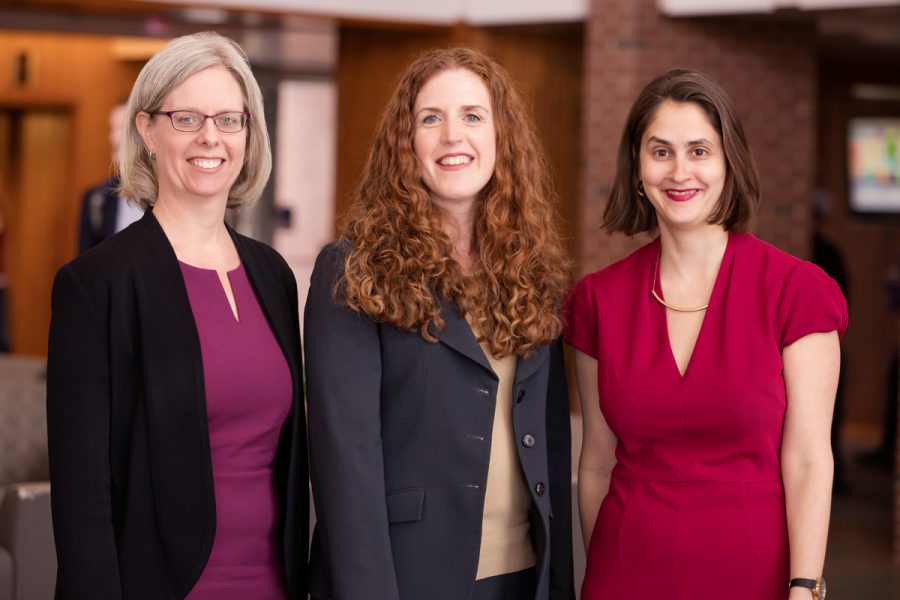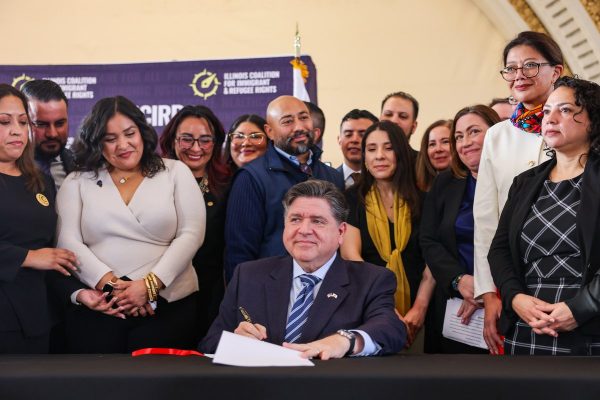Legal scholars explore transitional moments in sexual misconduct movement
Photo courtesy of L. Brian Stauffer
From left: Jennifer Robbenolt, professor of law; Colleen Murphy, professor of law; and Lesley Wexler, professor of law.
Apr 22, 2018
Three University legal scholars recently published an article exploring past cases of sexual misconduct in the wake of the #MeToo movement.
The paper is co-authored by Jennifer Robbennolt, associate dean for research at the College of Law and co-director of the program on law, behavior and social science; Colleen Murphy, director of the Women and Gender in Global Perspectives Program at Illinois; and Lesley Wexler, professor of law.
Influenced by the various sexual misconduct stories emerging in newspapers, social media and conversations, they wanted their paper to provide a comprehensive overview of sexual misconduct cases to date, Murphy said in an email.
“Part of what the #MeToo movement has shown is that sexual misconduct is not rare. Nor is it a product of the isolated conduct of a few bad apples,” Murphy said.
Murphy said she and her co-authors also wanted to suggest tools and resources to the questions and challenges raised by the #MeToo movement, such as how to fairly deal with victims and perpetrators of sexual misconduct and how interaction norms in the workplace can be transformed so sexual misconduct is no longer pervasive.
Get The Daily Illini in your inbox!
Wexler said in an email the #MeToo movement and increasing recognition of societal and structural changes are important for any university to consider.
“One can hope that in this time of a new understanding of the scope and effects of harassment and sex crimes that perhaps universities will think beyond their existing, limited reporting structures and craft more significant, creative approaches to prevention and remedies,” Wexler said.
Robbennolt said in an email she and her co-authors recognized the #MeToo movement as an important societal moment that paralleled other transitional moments around the world.
“We need to recognize sexual misconduct as a pervasive kind of wrongdoing that has become normalized, a basic fact of life around which women, primarily but not exclusively, must orient their conduct in many different settings,” said Murphy. “Overcoming denial about the existence and extent of sexual misconduct is the necessary first step to be able to effectively address it.”






